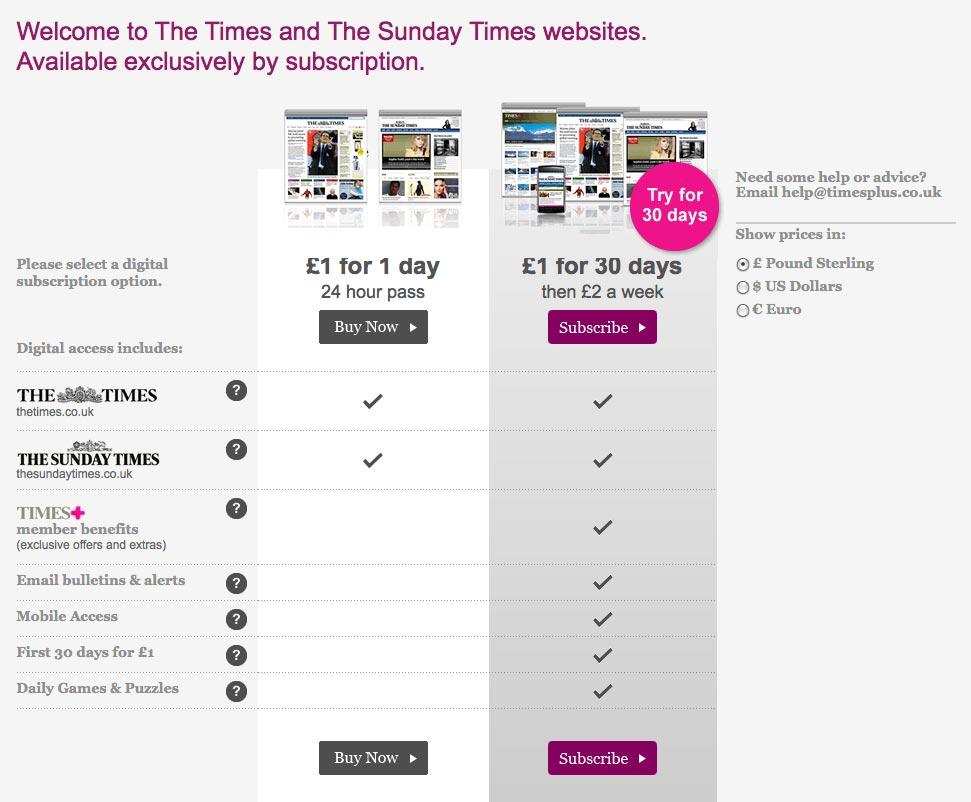News International’s announcement yesterday that the News of the World’s website will go behind a paywall wasn’t a complete surprise, given the same move by stablemates the Times and Sunday Times in July.
As yet there haven’t been any official figures released by NI about the traffic to its existing paywalled sites. There’s been plenty of speculation and unlike the News of the World’s website, the Times’ site was audited by the Audit Bureau of Circulations Electronic up until February, when it posted 20,418,256 monthly unique users.
So many questions about the success or progress of the Times and Sunday Times paywalls remain unanswered, prompting more questions about Rupert Murdoch’s decision to add the News of the World site to the paid experiment.
- Does NOTW.co.uk have a large enough audience already to sustain a switch to paid access?
It’s hard to find official stats for traffic to the existing NOTW website. Last October, the site said it had a record traffic day attracting 585,000 visitors from within the UK. For a record traffic month then, the site could attract around 17.5 million UK users. How likely to pay are non-UK users? Some breakdown of the Times and Sunday Times’ figures would be helpful again at this point…
- In erecting the Times and Sunday Times paywalls News International’s line was all about protecting quality journalism by getting people to pay for it. The price point for NOTW.co.uk will be lower, but is its content enough?
- No official figures for the Sun’s iPad app launched in June have yet been released and the Times’ iPad app has suffered some teething problems. At £1.19 for every four weeks, how many NOTW readers own iPads and vice versa, and is this price point too high?
- Where does this leave the Sun?
Reports earlier this year suggested that by blocking crawlers from news aggregators from its site the Sun was gearing up for a paywall launch. Possibly, or possibly this can be put down to senior executive’s feelings towards search engines and aggregators.
- How will a paywall affect print readership?
There are as yet no combined print and digital offers on the table from NOTW. According to the ABC’s figures for August 2010, the average net circulation for the print edition was 2,868,850 a day. Since the launch of its paywalled site the Times’ average daily net circulation has only decline slightly by 1.9 per cent – will the NOTW hold up in the same way?
And finally – it’s not just media reporters that are calling for more transparency and figures in the great paywall experiment. Advertisers and agencies want them too, according to this Bloomberg report:
Starcom MediaVest, which has placed ads for the Emirates airline and Continental Airlines Inc., has cut its advertising on the Times and Sunday Times by more than 50 per cent, Bailes [Chris Bailes, digital trading manager at Starcom MediaVest Group] said. News Corp’s international unit hasn’t communicated with media buyers about its online figures, he said.
“We wouldn’t put our money where we don’t know the numbers, just as you wouldn’t invest in a stock,” Bailes said.
